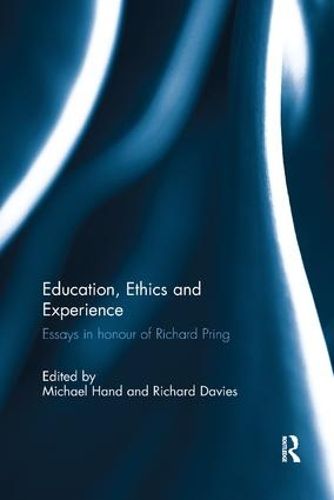Readings Newsletter
Become a Readings Member to make your shopping experience even easier.
Sign in or sign up for free!
You’re not far away from qualifying for FREE standard shipping within Australia
You’ve qualified for FREE standard shipping within Australia
The cart is loading…






Education, Ethics and Experience is a collection of original philosophical essays celebrating the work of one of the most influential philosophers of education of the last 40 years. Richard Pring’s substantial body of work has addressed topics ranging from curriculum integration to the comprehensive ideal, vocational education to faith schools, professional development to the privatisation of education, moral seriousness to the nature of educational research.
The twelve essays collected here explore and build on Pring’s treatment of topics that are central to the field of philosophy of education and high on the agenda of education policy-makers. The essays are by no means uncritical: some authors disagree sharply with Pring; others see his arguments as useful but incomplete, in need of addition or amendment. But all acknowledge their intellectual debt to him and recognise him as a giant on whose shoulders they stand.
This book will be a welcome and lively read for educational academics, researchers and students of Educational Studies and Philosophy.
$9.00 standard shipping within Australia
FREE standard shipping within Australia for orders over $100.00
Express & International shipping calculated at checkout
Education, Ethics and Experience is a collection of original philosophical essays celebrating the work of one of the most influential philosophers of education of the last 40 years. Richard Pring’s substantial body of work has addressed topics ranging from curriculum integration to the comprehensive ideal, vocational education to faith schools, professional development to the privatisation of education, moral seriousness to the nature of educational research.
The twelve essays collected here explore and build on Pring’s treatment of topics that are central to the field of philosophy of education and high on the agenda of education policy-makers. The essays are by no means uncritical: some authors disagree sharply with Pring; others see his arguments as useful but incomplete, in need of addition or amendment. But all acknowledge their intellectual debt to him and recognise him as a giant on whose shoulders they stand.
This book will be a welcome and lively read for educational academics, researchers and students of Educational Studies and Philosophy.